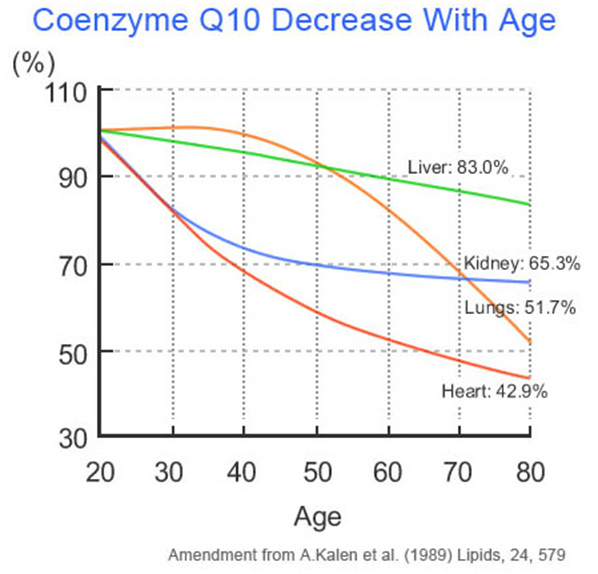Energy is something that we sometimes seem to have in short supply.
Do you feel like there’s an energy leak somewhere in your body and you can never get enough?
When you have a lack of energy it can impact your life in many ways.
Perhaps you are not as productive at work.
Or when you get home you barely have any energy to enjoy your evening.
Or you feel exercise is out of the question. You feel tired in the morning, during the day and at night. Exercise even though you know it’s important for your health . . . unfortunately . . . Right now . . . It’s out of the question to implement into your daily routine.
Maybe you’re so tired that your day is just a blur, and you’re only goal is to stay awake.

Low energy can decrease production at work
Imagine . . .
- Where your working days are NOW filled with laughter, enjoyment and excitement because of your regained energy whether you’re employment or self-employed.
- Being able to exercise or play the sport you love, maybe it’s 18 holes of golf, lawn bowls, cycling, Pilates, Yoga, going to the gym or whatever exercise you enjoy and still have the energy to take your partner shopping, play with your grandkids and have late-night drinks with “the boys/girls.”
- Entertaining your friends with your sharp humor… being able to remember jokes, the kind of intellect that comes from having an active, clear mind – regardless of your age
- Jumping out of bed – every morning – with a bright, optimistic view of life.
For you to be able to achieve this . . . what can you do?
One way to boost your energy levels is to fuel your mitochondria fire.
What’s that?
I thought you would never ask.
What are Mitochondria?
Mitochondria are often called the powerhouse of the cells because their job is to assist with generating metabolic energy in cells. They generate the most useful energy
from carbohydrates and fatty acids.1
Every cell in your body needs energy to perform their job from your brain cells to your muscle cells.
Brain cells need to communicate with different parts of your body, as do muscles.
Energy from the mitochondria facilitates that communication.
It’s similar to the energy from a battery.
Energy generated from mitochondria is in called adenosine triphosphate or ATP.
Mitochondria produces ATP using the electron transport chain.
On that chain, there are 4 groups of proteins that work together to generate the energy, after which they pass it along to the 5th protein to complete generation.
Once again expressing the importance of having daily adequate protein.
So you basically have an assembly line of energy workers in your body pumping an ongoing supply of energy into your cells.
What happens when the mitochondria aren’t functioning correctly?
Mitochondrial Disease . . .
‘Mitochondrial diseases are a clinically heterogeneous group of disorders that arise as a result of dysfunction of the mitochondrial respiratory chain. They can be caused by mutation of genes encoded by either nuclear DNA or mitochondrial DNA.’ 2
Mitochondrial disease impacts tissues in the body that are highly dependent on energy, which includes the brain, heart and muscles.
It could involve multiple tissues or a single tissue.
Diseases of the mitochondria include: (2a)
- Fatigue / Tiredness / Chronic Fatigue / Muscle weakness.
- Diseases of the mitochondria appear to cause the most damage to cells of brain, heart, liver, skeletal muscles, kidney and the endocrine and respiratory systems.
- Visual loss and blindness
- Cardiac conduction defects (heart blocks)
- Parkinson’s – A progressive disease of the nervous system.
- Dementia / Alzheimer’s – A progressive form of dementia that results in memory, cognition and behavior problems
- Progeria – Rare genetic disorder that causes children to age rapidly
- Fibromyalgia – Disease that affects the muscles and soft tissue; causes fatigue, insomnia and pain
- Diabetes and exocrine pancreatic failure (inability to make digestive enzymes)
- Irritable bowel syndrome
As you can see, mitochondria disease is quite pervasive and it can impact many areas of your body.
Since the mitochondria are so critical for our energy supply, any type of issue will manifest in tiredness or fatigue.
Boost Your Mitochondria
So how do you fuel the mitochondria fire?
There are several ways to do this through your lifestyle and diet.

High Intensity Exercise increases mitochondria
Exercise
Exercise has been shown in studies to increase mitochondria volume.3
The study showed an initial spike in mitochondria formation, after which it leveled out and continued to generate at a steady pace.
The type of exercise is important to note, because it’s typically high intensity, aerobic exercise that helps to increase mitochondria. Some examples of this type of exercise are running, cycling, swimming, and skiing.
Foods That Give You Energy
Eating low nutrition foods puts an extra burden on your mitochondria.
Instead of generating energy to help your body function, energy is being wasted burning through junk food.
Try avoiding foods sugar laden foods, dairy, gluten and the inflammatory foods.
Instead, opt for wild fish, vegetables, fruits, greens, and try coconut milk as an alternative to dairy.
In addition to foods it’s important to supplement with vitamins.
The following vitamins are helpful for boosting your energy:
- CoQ10- This is produced by our body and plays a key role in the mitochondrial chain (3a)
- Riboflavin – This vitamin helps to stabilize the mitochondrial membrane (4)
- Selenium – Preserves mitochondrial function and stimulates biogenesis (5)
- Vitamin B3 – Slows the progression of mitochondrial disease (6)
As mentioned above one of the most important nutrients for Mitochondria Health is CoQ10, but unfortunately levels of CoQ10 start dropping from the age of 20.
The following graph tells the whole story:

When looking at the graph above notice the rapid decline of CoQ10 for Heart especially between 40 and 50 year olds.
For males this is a very vulnerable age for heart attacks.
Bizarrely it seems to hit the fit 40 to 50 year old males.
I’m sure you’ve heard about or read in the papers, about the extremely fit guy who had a heart attack and passed away.
Once you know this information . . . how important is it to supplement with CoQ10.
Also by the time you’re 80, most of your CoQ10 has disappeared.
And that’s bad news…
In addition to supplying energy, CoQ10 is a powerful antioxidant.
Think of an anti-oxidant like a fireman putting out a fire.
The fire represents Chronic inflammation and Chronic inflammation is one of the drivers to all disease.
Therefore CoQ10 gives energy and puts out this fire via its antioxidant properties and protects your organs and tissues from damage.
Aside from giving your heart and brain the extra fuel it needs to keep working, it preserves them and keeps them in working order for much longer.
Think of an apple.
If you cut a piece off and leave it lying on your kitchen counter, because of oxygen the apple discolours and the apple starts to break down.
But put it in a BPA free plastic bag and put it in the fridge it stays fresh for longer.
This is a simple example of the type of anti-aging power that CoQ10 gives you.
New scientific research is opening up a new world of CoQ10.
Importantly though the type of CoQ10 used is important.
I haven’t the time to go into it now but this it’s why a lot of people when they are clients of the clinic suggest that CoQ10 doesn’t work.
Unfortunately they are using the wrong type!
For myself, I have been using CoQ10 for over 25 years that has a 633% superior absorption than other types of CoQ10 and it’s nice to read more scientific validation of its benefits.
These include:
- Tiredness, Chronic Fatigue and Energy Depletion improves with taking CoQ10. (6a)
- Memory or Cognition … an animal study performed at Johns Hopkins University found that CoQ10 supplementation improves learning and memory. (6b)
- Blood Sugar: An Australian study showed that patients who took CoQ10 were able to maintain healthy blood sugar levels that were already within the normal range. (7)
- Vision and Eye Health: A recent clinical trial showed adults who supplemented with a combination of CoQ10, acetyl-L-carnitine, and omega-3 fatty acids for one year improved their visual function. (8)
- Easier Breathing: Researchers in Texas found a correlation between CoQ10 levels and respiratory health. (9)
- Gum Health: CoQ10 improves gum health and also supports tissue healing. (10)
- Heart Health … according to the Journal of Cardiovascular Pharmacology, a number of clinical studies have found CoQ10 promotes cardiovascular health. (11)
Natural Ways to Increase Energy
- Colon Cleansing – This is a natural way to remove toxins from the body and allow energy to flow more freely
- Movement – They say sitting is the new smoking. If you’re sitting for long periods of day, try to get up at least once per hour.
- Mindful breathing – You would be surprised how much energy you can get from a simple deep breath. Oxygen gets that energy moving through your body.
Energy is something that we can all use more of.
Making conscious changes to your diet and lifestyle will start you on the path of increased energy, which will improve your overall quality of life.
Would You Like To Find Out More?
If you are a member of our clinic and interested in Regain Your Energy Now Program and you would like to know more about fatigue and how it’s related to stress, adrenal fatigue or cortisol levels, just let Wayne know at your next consultation.
For those who are not members of the clinic, there are two ways you can respond. . .
1. I would like to book in for your Free 20 Minute consultation online to ask further questions on how you can help me . . . or I will phone you on 07 5474 5354
2. I am pro-active about my health. I want to book now and I realise the consultation is normally valued at $300.00, however if I act now I will receive a substantial discount!
Yours in Health
From the Team at Unique Health and Wellness
P.S. As mentioned earlier . . . Low energy can be caused by mitochondrial disorders. These conditions can be frustrating to deal with, however we are here to assist you with natural solutions that are proven to work for many clients.
P.P.S. I’m pro-active about improving my energy, I want to book now and I realise the consultation is normally valued at $300.00 and if I act NOW I will receive the consultation for ONLY $197.
References . . .
1. http://www.ncbi.nlm.nih.gov/books/NBK9896/
2. http://www.ncbi.nlm.nih.gov/books/NBK1224/
2a. http://www.umdf.org/site/c.8qKOJ0MvF7LUG/b.7934627/k.3711/What_is_Mitochondrial_Disease.htm
3. http://www.ncbi.nlm.nih.gov/pmc/articles/PMC1540458/
3a http://www.ncbi.nlm.nih.gov/pmc/articles/PMC3561461/
4. http://www.ncbi.nlm.nih.gov/pmc/articles/PMC3561461/
5. http://www.ncbi.nlm.nih.gov/pubmed/22776356
6. http://www.ncbi.nlm.nih.gov/pmc/articles/PMC4203351/
6a http://www.ncbi.nlm.nih.gov/pubmed/20010505
6b. http://www.nutraingredients-usa.com/content/view/print/151477
7.Hodgson JM, Watts GF, Playford DA, Burke V, Croft KD. Coenzyme Q10 improves blood pressure and glycaemic control in a controlled trial in subjects with type
8. diabetes. Eur J Clin Nutr. 2002 Nov;56(11):1137-42. 2 Blasi MA, Bovina C, Carella G, et al. Does coenzyme Q10 play a role in opposing oxidative stress in patients with age-related macular degeneration? Opthalmologica. 2001 Jan-Feb;215(1):51-4.
9. Ye CQ, Folkers K, Tamagawa H, Pfeiffer C. A modified determination of coenzyme Q10 in human blood and CoQ10 blood levels in diverse patients with allergies. Biofactors. 1988 Dec;1(4):303-6.
10. Horowitz S. Coenzyme Q10: one antioxidant, many promising implications. Altern Comp Therapies. 2003 Jun:111-6.
11. http://www.ncbi.nlm.nih.gov/pubmed/11796022
Disclaimer
The information provided does not take into account individual needs of any particular person. When providing this information it is intended as a sharing of knowledge and information from the research. The information provided should not be construed as personal medical advice or instruction and is not intended to replace a one-on-one relationship with a qualified health care professional and is not intended as medical advice. We encourage you to make your own health care decisions based upon your research and in partnership with a qualified health care professional.
MORE BLOG STORIES
Breaking Down the B Vitamins
Amazing Ways to Help Heal Mitochondrial Dysfunction!
The 5 Worst Foods For Your Gut
‘THE GOLDEN GODDESS’
Mitochondria, Inflammation and Oxidative Stress
Tired? You May Be Suffering From Mitochondrial Dysfunction